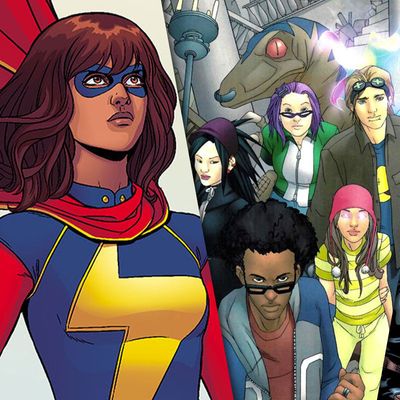
Physics tells us that all universes tend toward expansion, and the Marvel Cinematic Universe is no exception. The shared cosmos that viewers first saw in 2008’s Iron Man has grown at a dizzying pace, giving us 12 movies (with 11 more scheduled out between now and 2019), two prime-time dramas, and, most recently, a set of Netflix original series. The first two of those, Daredevil and Jessica Jones, were fan-favorites and critical sensations (and were probably watched by a ton of people, though Netflix keeps such data very close to the vest). They’re technically set in the same New York City where the Avengers did battle with alien invaders back in 2012’s The Avengers, but these stories mostly exist on their own, focusing on barroom brawling and back-alley intrigue rather than high-flying superheroics.
We’ve long known that Netflix and Marvel Studios were planning to do more such shows together — Luke Cage, Iron Fist, and a team-up show called The Defenders — but their slate is getting even larger. First there were rumors of a series based on fascinating third-tier Marvel hero Moon Knight, then rumblings about a possible series focusing on legal enforcer the Punisher, who is appearing in Daredevil’s second season. But speculation about the future of Marvel on Netflix can kick into overdrive now thanks to a quote from Netflix’s chief content officer, Ted Sarandos.
During his Television Critics Association press tour, Sarandos said, “Any character that’s in there is on the table,” referring to the Marvel Comics characters that Marvel Studios owns the TV rights to. “It’s always possible. All the characters in the universe could also spin out.” Who might that mean? There’s a long-standing dispute with Fox over the TV rights for all characters in the X-Men and Fantastic Four franchises, so those aren’t kosher. But the vast majority of Marvel’s 75-year-old canon is up for grabs.
And here’s the key: The Marvel-Netflix partnership has consisted of stories about street-level characters who either fell from favor in past film projects (Daredevil) or who were never very famous to begin with (Jessica Jones, Luke Cage, and Iron Fist). Let’s have some wild speculation about other characters who meet those criteria. Marvel has a deep well of such characters to draw from. Here are six that could, theoretically, work.
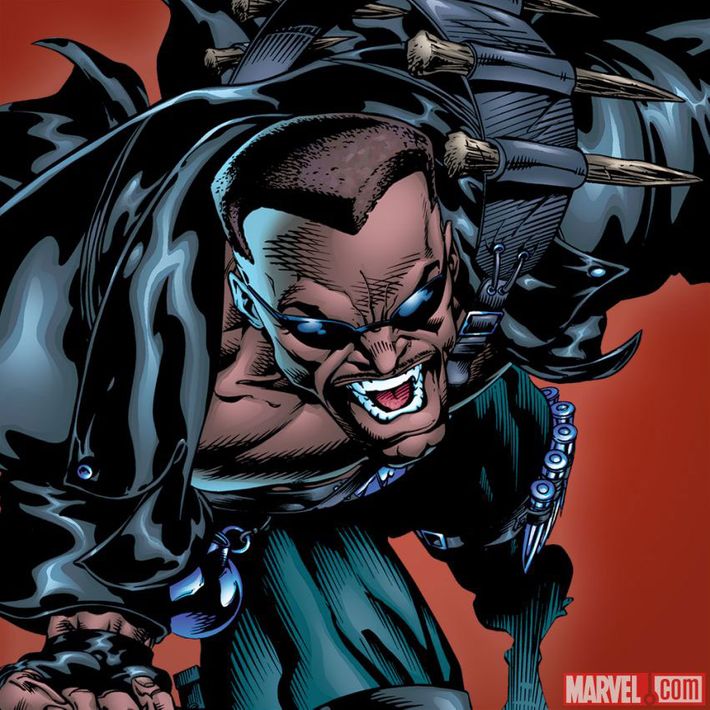
Blade
The first movie about Blade, released in 1998, was the low-key kickoff to our current superhero-movie revolution. A Marvel character had never led a blockbuster hit, but that changed with Wesley Snipes’s portrayal of this shades-wearing, sword-wielding, one-liner-spouting vampire-hunter. There’s a reason: In the right hands, he’s a terrifically exciting character who straddles the line between the horror and superhero genres.
As anyone who saw Blade or Blade II (and I’m so sorry if you were subjected to Blade: Trinity) can tell you, Blade stories function best in the shadows, where he grins and slays terrifying creatures. You couldn’t find a more ideal visual fit for the Marvel-Netflix world of midnight tussles and after-hours agony. Plus, the character already has built-in brand-name appeal. Marvel Studios chief Kevin Feige made it clear in 2013 that the company firmly owns the film rights for Blade, so the path is legally clear for them, and Snipes has repeatedly said the studio is talking to him about a new life for the character. The wet streets of Marvel’s Netflix world could be a terrific place for that new life to play out.
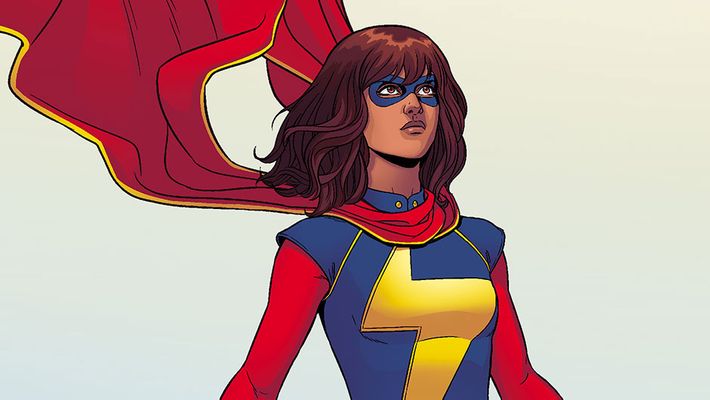
Ms. Marvel
The new Ms. Marvel only debuted a couple of years ago, but she’s already become a crucial brand for Marvel Entertainment. It seems extremely likely that she’ll end up in the Marvel Cinematic Universe in some capacity, and she could potentially work quite well on Netflix. The hero’s secret identity, Kamala Khan, is a Pakistani-American teenager living in Jersey City whose geeky life of writing fanfic and enduring dull religious lessons is interrupted one fateful night. She’s exposed to the transformative Terrigen Mists — a useful MacGuffin that was introduced in another Marvel TV project, Agents of S.H.I.E.L.D. — and finds that she has the ability to manipulate her body’s size and shape. (Embiggening is her adorkable word for it.)
She dons a sensible, simple costume and sets out to defend her burg. What sets Kamala’s stories apart is how small-scale they are. Much like the protagonists of Jessica Jones and Daredevil, Kamala puts her roots firmly in her city, seeking to defend it rather than jet off to exotic lands to punch cosmic entities. She’s simply a funny, awkward teen who doesn’t have access to money or advanced technology.
Ms. Marvel is a consistent seller for Marvel, especially in collected editions that get sold in mainstream bookstores, so I’m certain the higher-ups know there’s potential demand outside hard-core comics geekdom. It’s only a matter of time before we see more of Kamala, and they’d be wise to put her in a grounded, urban setting like the other Netflix series. They’d just have to make sure she doesn’t get too grim and gritty. She’s as optimistic and hopeful as Daredevil is tortured and angry.
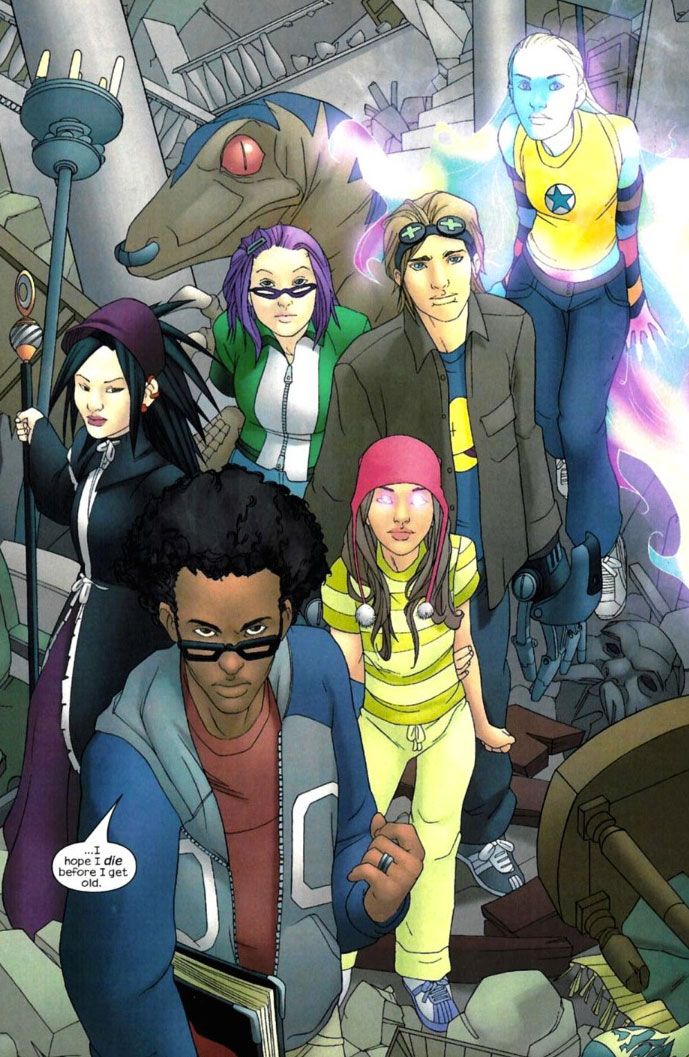
Runaways
It’s hard to find anything new under the sun in superhero comics, but in 2003, writer Brian K. Vaughan and artist Adrian Alphona gave the world a fascinating concept: What if a group of kids found out their parents were supervillains and decided to steal powerful stuff from their folks, run away from home, and fight evil — all while trying to avoid getting captured by their moms and dads?
The resulting series, Runaways, was a critical smash that ran in various forms for most of the decade. It’s a charming notion, one tinged with the tragic realizations that come with adolescence and the charming humor that comes when kids are getting to know and appreciate each other. This one’s a bit of a stretch for Netflix and Marvel, at least in its original form, because the powers the kids end up wielding are often surreal and colorful. But if you just stick to the core idea — a band of resourceful youngsters on the run from their evil parents — you could have a The Warriors–esque chase through the streets of Marvel’s New York.
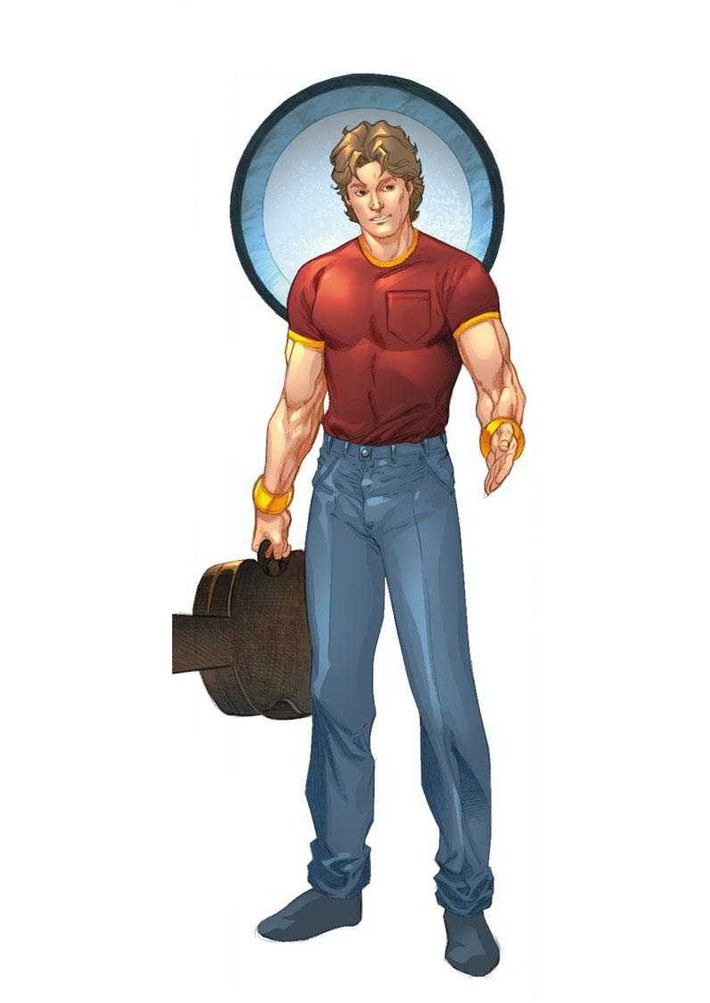
Rick Jones
This one would take a lot of tweaking, but there’s something great buried here. In the comics, a lazy teenager by the name of Rick Jones was hanging out in the test site where Bruce Banner’s gamma bomb went off and gave Banner his Hulk powers. Subsequently, Rick becomes Bruce’s on-again, off-again sidekick, providing comic relief and getting into trouble. What sets him apart from his obvious parallel, Superman’s Jimmy Olsen, is that he thinks he’s cool. Rick is a sweetheart, but he’s prone to being as vain as he is charming.
Now, obviously, the Marvel Cinematic Universe’s version of the Hulk doesn’t have a sidekick, and Marvel’s Netflix properties steer pretty clear of any direct crossover with the Avengers. But! If you liberally adapted the Rick Jones concept, you could end up with a story about a superhero groupie. We’d be introduced to a person who isn’t himself superpowered but who longs to be around those who are — and who, somewhat pathetically, somewhat adorably, leverages his minor bits of fame-by-association to get laid and feel better about his life choices.
Perhaps you have an MCU Rick Jones who had one moment of interaction with the Avengers — something we maybe don’t even ever see onscreen, we only hear tell of — and has been dining out on it ever since. One day, he stumbles across some kind of lurid superhuman crime and has to, for whatever reason, solve it on his own without going to the authorities. You’d have a story about what it means to idolize others and the dangers that can come from longing for notoriety.
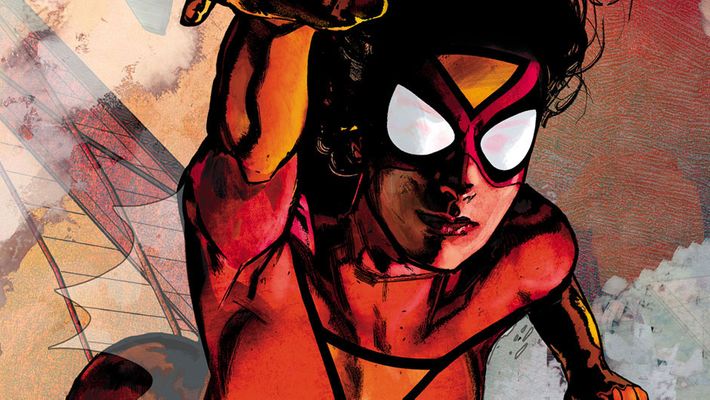
Spider-Woman
Don’t let the name fool you: Spider-Woman has virtually nothing to do with Spider-Man. (Hooray for superhero comics, the world’s most confusing genre!) This Marvel Comics mainstay is a woman whose geneticist father tried to save her life by injecting her with a serum that gave her some of the powers of a spider. She’s been an Avenger a number of times, but for my money, the most interesting stories about her have to do with her working for the government in their efforts to deal with metahuman matters.
While it’s unlikely that a Netflix Marvel show would feature world-police organization S.H.I.E.L.D. (in no small part because the organization was formally disbanded after Captain America: Civil War and only operates secretly in Agents of S.H.I.E.L.D.), you could tell an interesting story about a resentful former operative for some other government agency. Maybe she was treated as a second-class citizen at the job for being superpowered, always held at arm’s length and disrespected — and then, ultimately, accused of a crime she didn’t commit and forced to go on the run. Maybe she has to solve the mystery of how she got wronged by delving into the underbelly of New York City. It’s a bit of a stretch, but a tale about a crafty and betrayed G-woman could be thrilling.
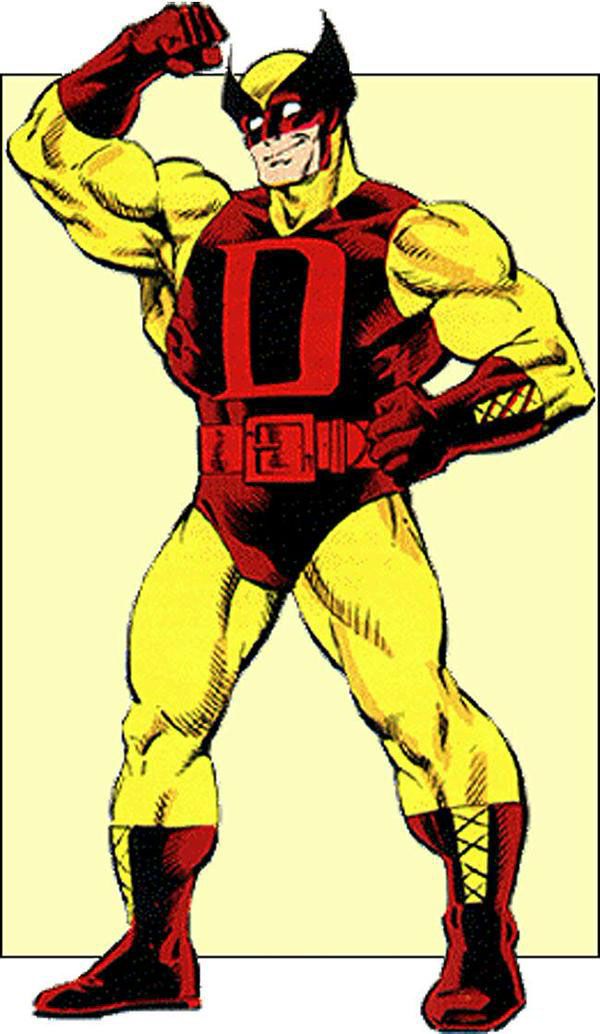
D-Man
Okay, hear me out. D-Man is the butt of many comics-world jokes, often cited as one of the lamest heroes in Marvel history. But there are some interesting ideas at his core, I swear! Dennis Dunphy is a good-hearted, salt-of-the-earth guy who idolizes superheroes. He plays college football but finds himself unable to get a pro contract and undergoes some shady experimentation to get increased strength. Trouble is, he’s too strong afterward and can’t play safely. So, of course, he becomes a professional wrestler. After learning what his shadowy super-steroid suppliers are up to, he turns on them and tries to fight for justice alongside the heroes he loves so much. He’s not a tactical genius, he’s not a techno-whiz, he’s not a god, he’s not even that superhumanly strong. He just has a good heart and good common sense and wants to do right by the world. Wouldn’t you be game for a show about a superhuman pro wrestler who takes down a steroid ring?

